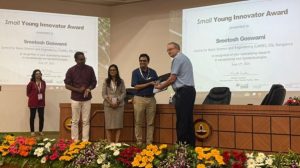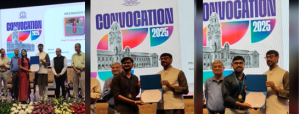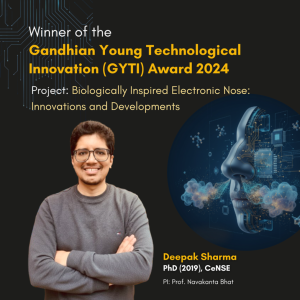Latest News

Prof. Ambarish Ghosh Wins 2025 Tata Transformation Prize for Nanorobotics Breakthrough

INAE Honours Dr. Aditya Sadhanala for Innovation & Entrepreneurship
Dr. Sadhanala has been awarded the 2025 INAE Young Innovator & Entrepreneur Award for his pioneering work and contributions at CeNSE, IISc


Global Recognition for Prof. Sreetosh Goswami
Prof. Goswami has been honoured by the Small Journal Family (Wiley) for his exceptional contributions to nanoscience and nanotechnology.


